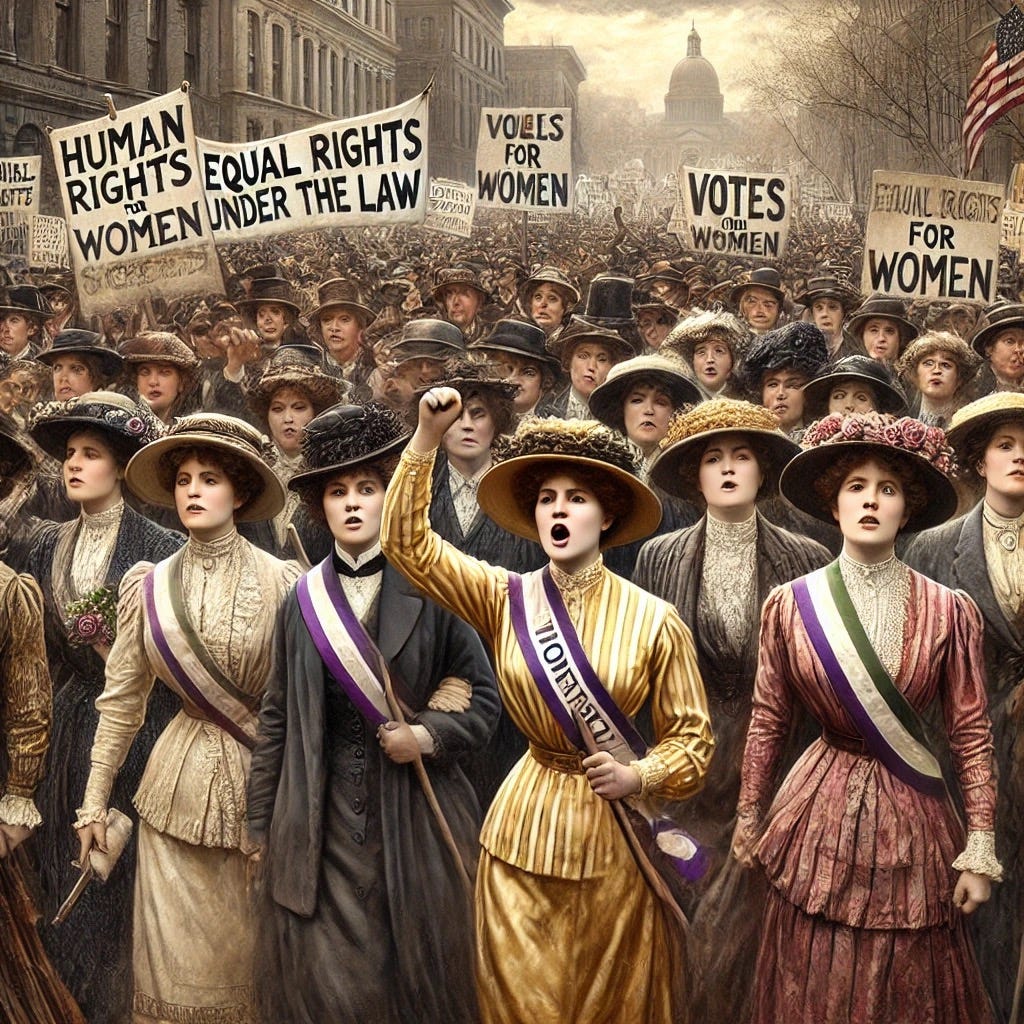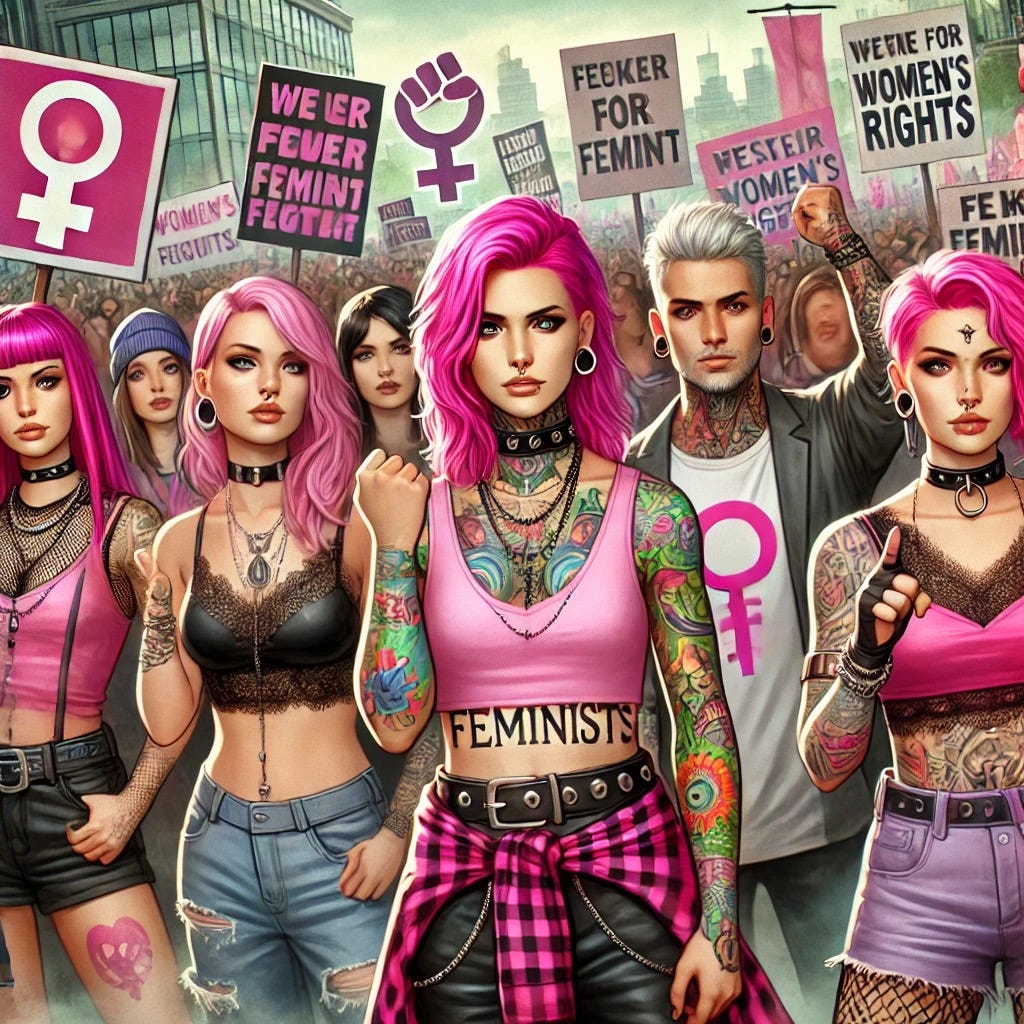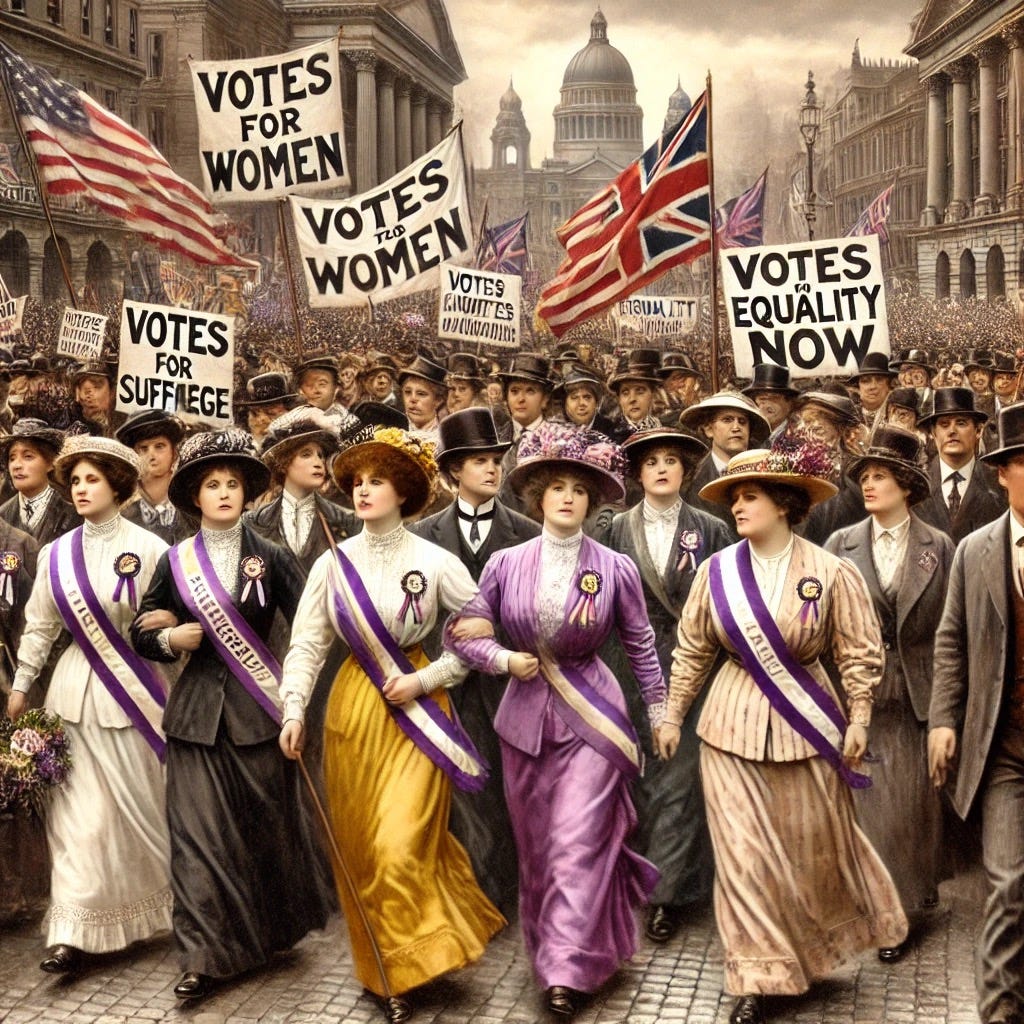First-Wave Feminism: A Necessary Evil
From an anarchist perspective, it is difficult to justify anything produced by a system built on coercion, hierarchy, and control. However, when examining the early suffrage movement through the lens of natural autonomy (understood in its classical sense as the inherent right of individuals to self-governance and self-ownership), it becomes clear why it was a necessary evil. Women were not merely oppressed within the system; they were legally denied their own agency and treated as property rather than persons. While true autonomy should not require state recognition, the reality was that without legal personhood, women had no means to assert even the most fundamental rights over their own bodies and lives. The suffragettes did not seek to reinforce the system but to use it against itself, leveraging its own mechanisms to dismantle the legal barriers that prevented women from exercising their natural freedom. In an ideal world, no one would need permission from the state to exist as a full human being, but within the constraints of a society that functioned on legal definitions of personhood, gaining that recognition was the first step toward dismantling institutionalized oppression.
The women’s suffrage movement was not solely about securing the right to vote; it was about gaining legal recognition as full human beings with autonomy under the law. Before the suffragettes’ activism, women were not considered independent legal entities, but rather extensions of their fathers or husbands. They had no legal claim to their own wages, property, or even their own bodies. The right to vote was a means to an end, a necessary evil in a system that only granted rights to those who could participate in governance. Suffrage was not the ultimate goal but rather the first step toward securing full legal personhood, a distinction that would allow women to claim control over their own lives rather than being subject to the unchecked authority of men. I don’t mean this disparagingly. Only factually.
One of the most egregious legal injustices against women was the fact that marital rape was not considered a crime. A husband had complete sexual access to his wife, regardless of her will, because the law did not recognize her right to refuse. Women’s suffrage was a crucial step toward overturning this injustice, as it granted women the political agency to push for further legal reforms. Without legal personhood, women had no means to advocate for laws that protected them from violence within their own homes. The recognition of women as autonomous human beings under the law was the foundation upon which later protections against sexual violence were built, and it was suffrage that made this fight possible.
Alongside the battle for personal autonomy was the struggle for control over reproduction. At the time, birth control options were virtually nonexistent, and contraceptive information was often illegal to distribute. Abstinence was the only widely available method of preventing unwanted pregnancy, and in a legal system where women had no right to refuse sex within marriage, even this option was often denied to them. The suffragettes fought not just for the right to vote but for the right to say ‘no’, to reject unwanted advances and, in doing so, prevent pregnancies that they had no legal power to avoid otherwise. Legal personhood meant the ability to exercise self-control over one’s body, a concept that was revolutionary at the time.
However, later waves of feminism distorted and redefined this fight for bodily autonomy. The original intent of first-wave feminists was to gain legal recognition so that women could prevent unwanted pregnancies through consent and autonomy, not through terminating pregnancies that had already occurred. Over time, this struggle for the right to say no was replaced by an emphasis on abortion as a solution, rather than the prevention of conception in the first place. The normalization of ending pregnancies rather than preventing them was not what the suffragettes envisioned. Their movement was centered on achieving the legal status necessary for women to control their own bodies within the constraints of a system that had long denied them this right.
The suffragettes understood that they were working within an unjust system, and they used the tools available to them to achieve the fundamental right to be recognized as autonomous individuals. Working within the framework of a system that had historically excluded them in order to eventually dismantle the legal and societal norms that kept women subordinate, was a necessary evil. The right to vote was not granted out of goodwill but was fought for in an effort to force the legal system to acknowledge women’s existence as fully human. Only by securing legal recognition could women begin to advocate for further rights, such as the ability to own property, seek education, and protect themselves from exploitation.
Ultimately, the suffragettes were not fighting for privilege or special treatment, but for the most basic human right: the recognition of their autonomy. Without this, they had no legal recourse against forced pregnancies, marital rape, or financial dependence on men. The legacy of the suffrage movement is not merely the vote but the acknowledgment that women are full human beings under the law, capable of making their own choices. The distortion of their fight by later movements does not erase the necessity and the righteousness of their struggle. They laid the foundation for all women’s legal rights, not by seeking to upend morality, but by demanding the dignity and autonomy that had long been denied to them.






Good timing with the latest couple waves giving feminists a bad name!